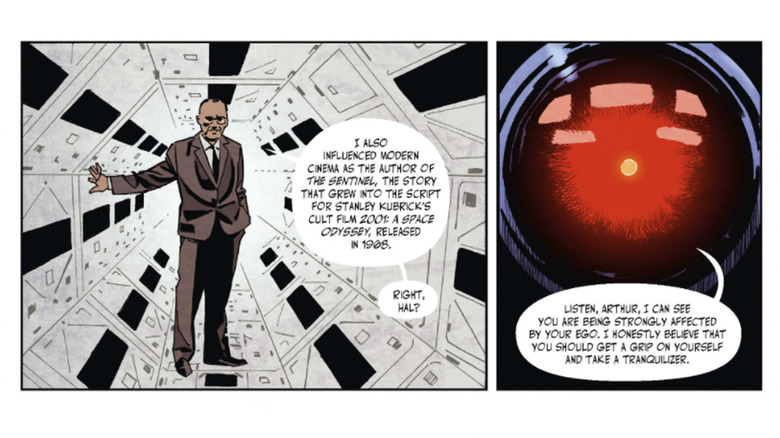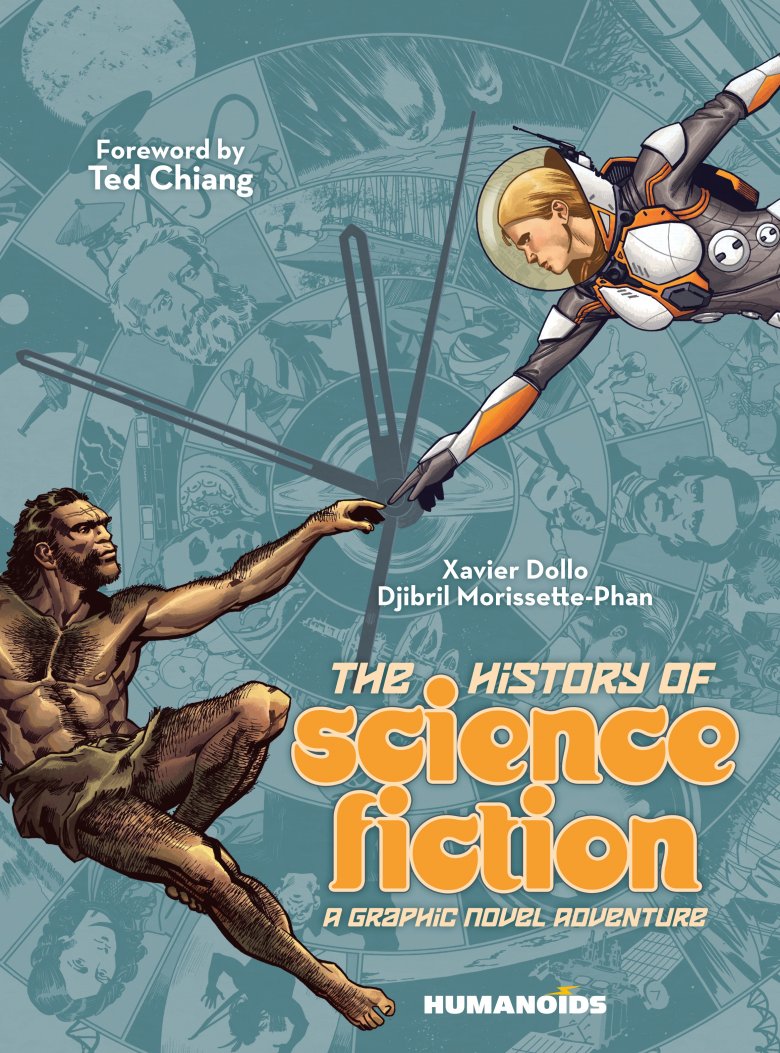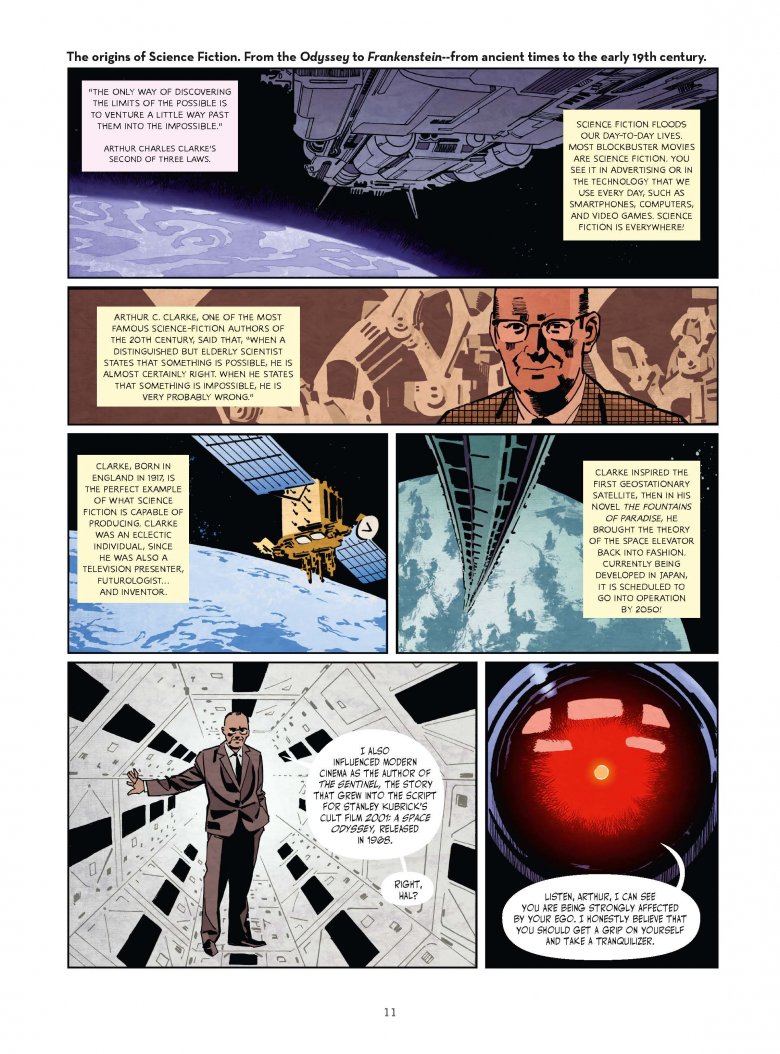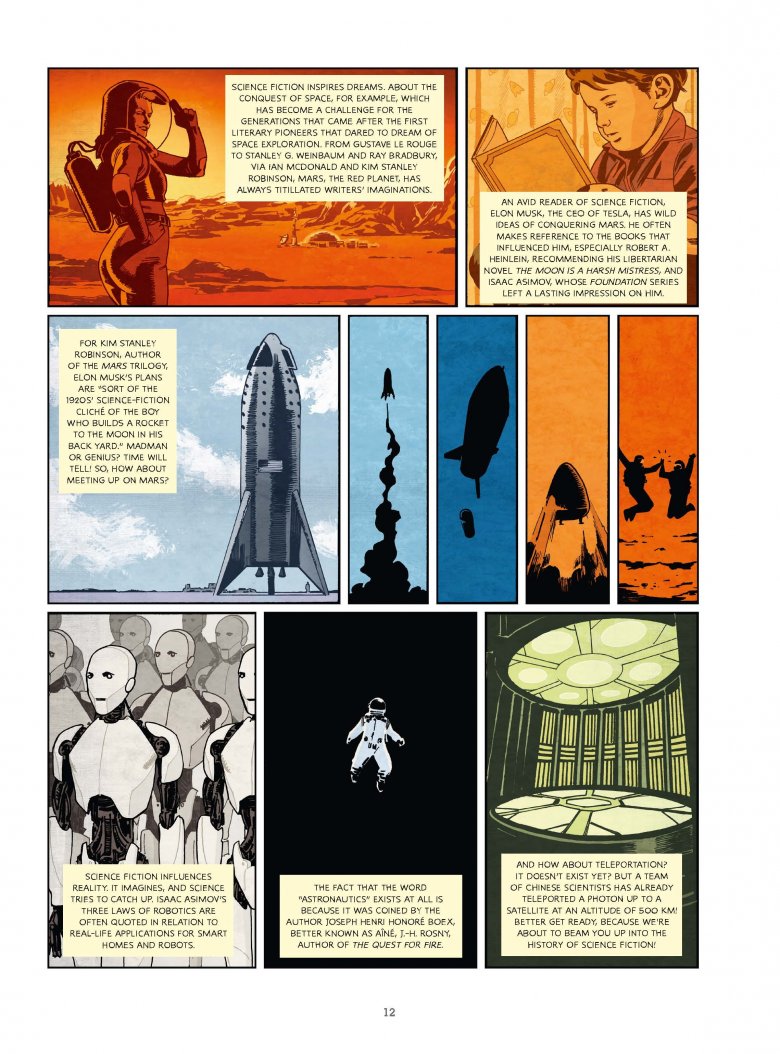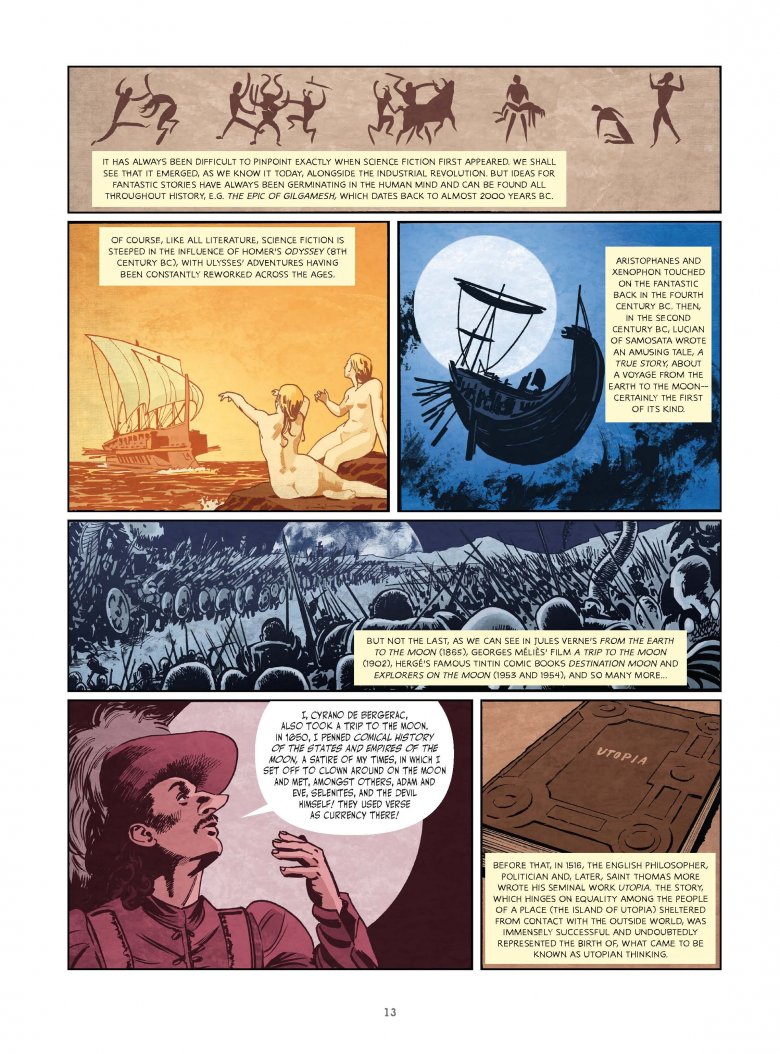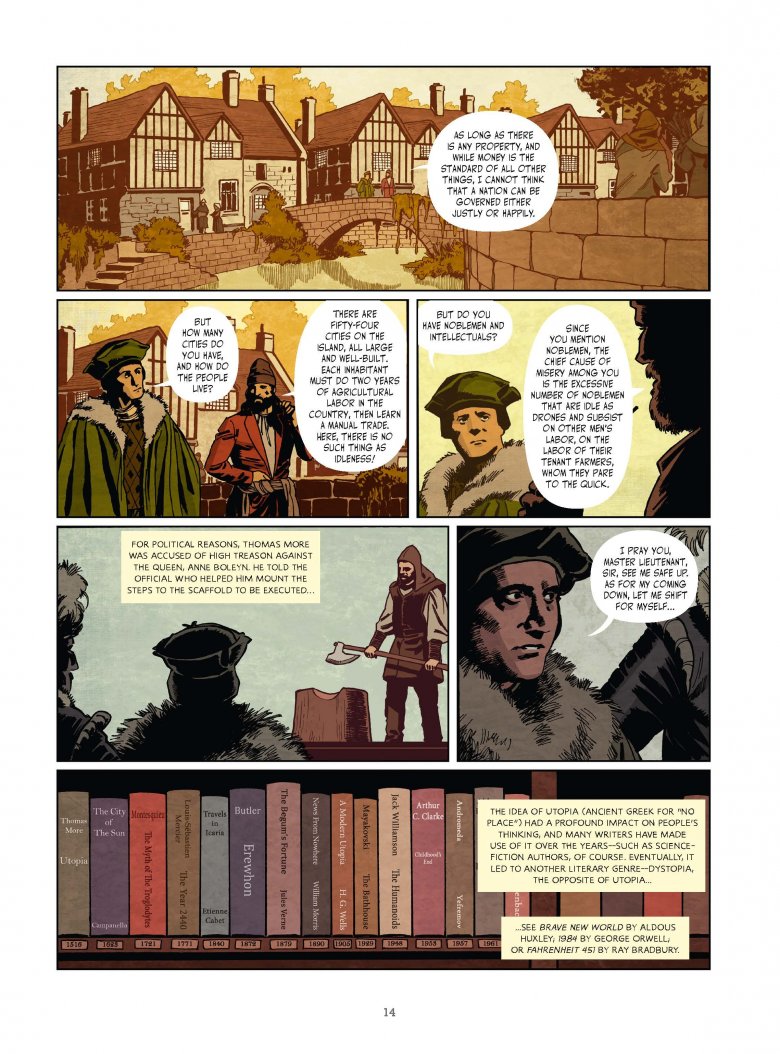The History Of Science Fiction Traces The Genre In Comic Book Form - Read An Exclusive Preview
As we careen further into the 21st century, gigantic leaps in technology continue to make it clear that we are living in an entirely different world than the generations that preceded us. But some of the folks in those earlier generations had the vision to know that tumultuous changes were coming, and several of them worked out their thoughts about humanity's evolution and its relationship to technology in science fiction, a genre which was once looked down upon but has since become one of the most dominant genres in modern entertainment.
"The History of Science Fiction," a forthcoming illustrated book written by author/historian Xavier Dollo ("Under the Shadow of the Stars") with illustrations by Djibril Morissette-Phan ("All-New Wolverine"), aims to be a comprehensive look at the origins of the now-beloved genre, and we have a few preview pages to exclusively debut for you. Here's a glimpse at what you'll see in the new book when it hits stores later this month.
The Cover
As you can see, there's a foreword by acclaimed author Ted Chiang, who, among many other things, wrote the short story "Story of Your Life," which served as the basis for Denis Villeneuve's 2016 movie "Arrival." As a fan of that short story, I'm especially curious about his thoughts on this subject.
The cover explicitly positions the science fiction genre as a bridge between old and new, and the giant clock at the center of the image underscores the idea of progress and growth across eons.
Arthur C. Clarke
Here's the eleventh page of the book, which touches on the massive influence Arthur C. Clarke had on the genre – and subsequently, the real world.
Elon Musk
Say what you will about Elon Musk (and there is obviously a lot you could say), but his position in the history of science fiction (and in this literal book!) has already been secured, no matter what insane tweet he fires off next.
When Did Science Fiction Truly Begin?
As the title implies, the book tries to pinpoint exactly when sci-fi was birthed as a concept, noting several stories that are thousands of years old which contain elements of what we know to be sci-fi today.
From Utopia to Dystopia
Thomas More was not a person I previously thought of as being integral to the foundation of the sci-fi genre, but hey! I've learned something already.
The best sci-fi stories transport readers or viewers to unfamiliar environments, but underneath all of the sleek spaceships and cool robot designs, they also reflect elements of our own experiences and tell us something about the human condition. I look forward to diving into this book's exploration of the genre when it's published on November 23, 2021.
